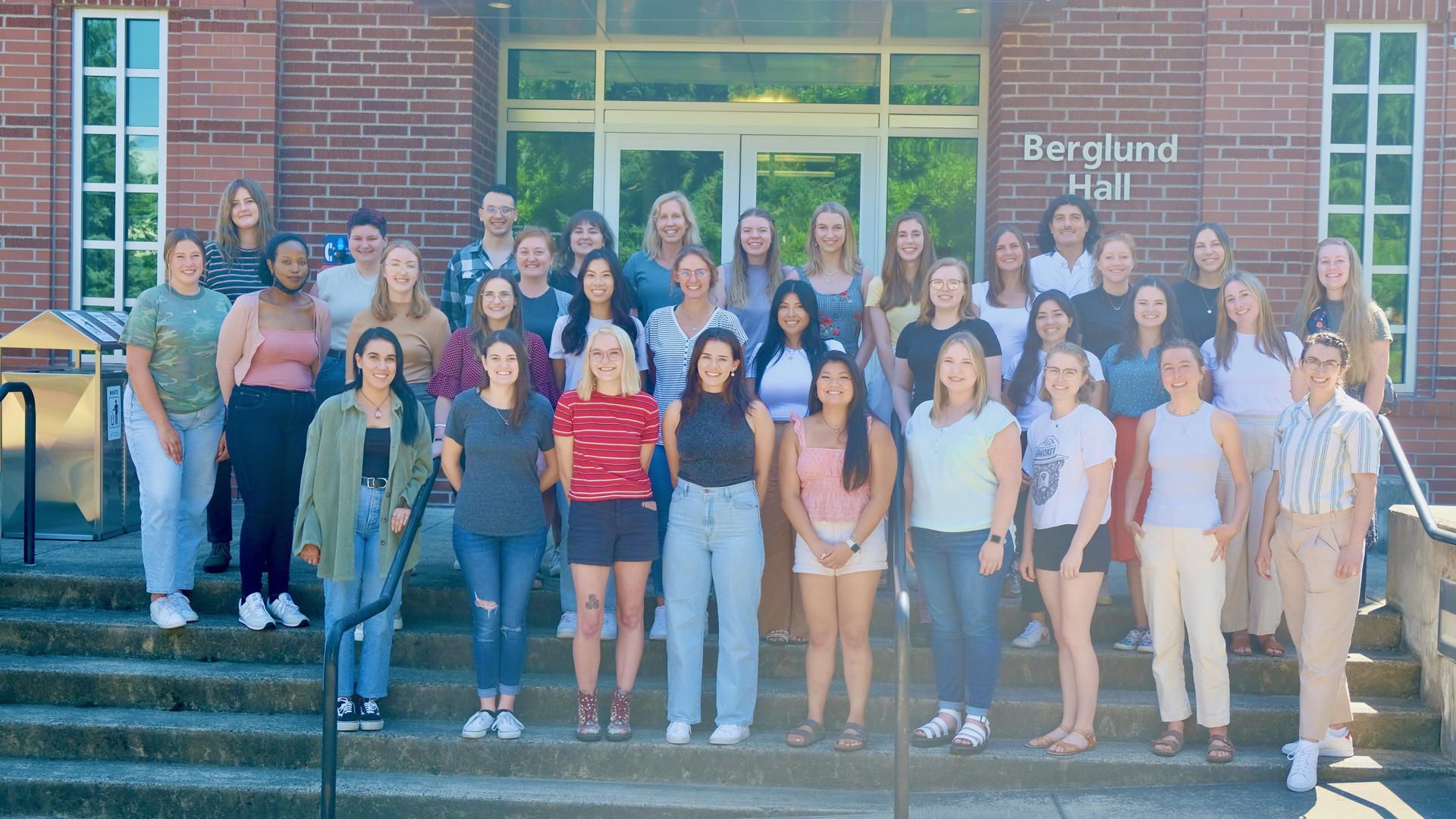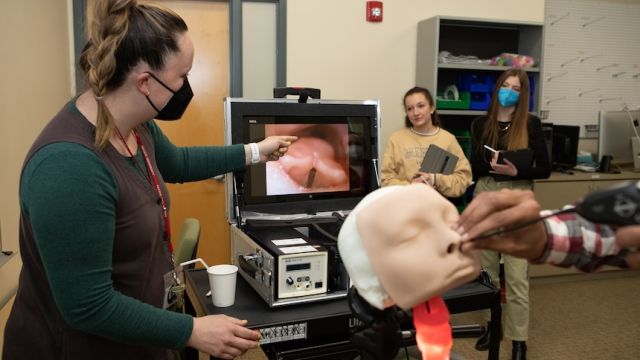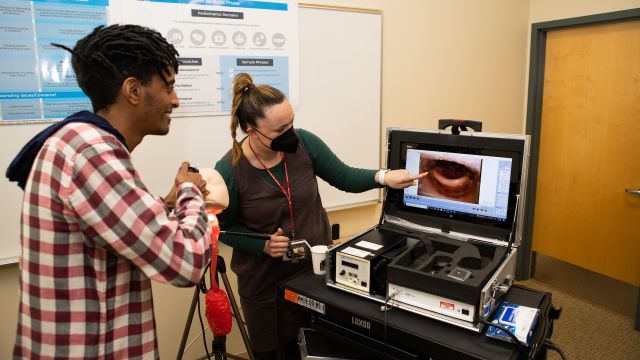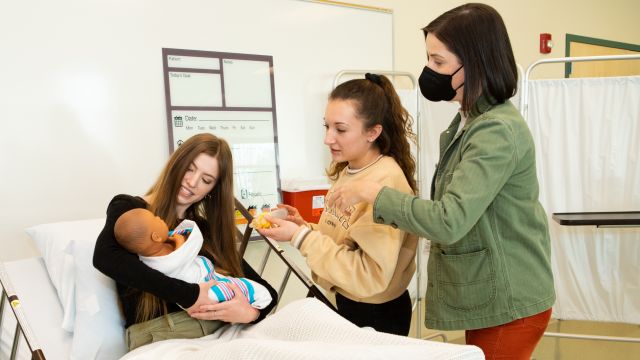
School of Communication Sciences & Disorders
Located on the Forest Grove Campus, the School of Communication Sciences and Disorders (CSD) offers undergraduate and graduate programming in the communication sciences and disorders.
Academic Programs
The School of Communication Sciences & Disorders offers an undergraduate minor in communication sciences & disorders, designed to prepare students for admission to graduate programs in audiology and/or speech-language pathology.
Students who already hold a bachelor’s degree also may complete a post-baccalaureate certificate in communication sciences and disorders — offered in-person in Forest Grove or online — to prepare for graduate school admission.
The school’s largest program is the master of science in speech-language pathology.
NSSLHA
Pacific University is included among the list of recognized programs supporting the academic and pre-professional interests of students who are engaged in the study of communication sciences and disorders. students are invited to join the Pacific University Chapter of the National Student Speech-Language-Hearing Association (NSSLHA) to receive a number of benefits.
About the School of Communication Sciences & Disorders
Vision
Changing practice by developing exceptional critical thinkers who become leaders in their diverse communities
Mission
The mission of the School of Communication Sciences and Disorders is to:
- develop a diverse, equitable, and inclusive workforce of collaborative professionals who are leaders in their communities;
- integrate science, theory, and the art of practice;
- inspire curiosity and cultivate critical thinking;
- promote the well-being of those we serve with humility and genuine care;
- curate authentic clinical experiences through reciprocal partnerships with diverse and underserved communities;
- advance scholarship to move the profession forward.
Values
Community | Equity | Compassion | Critical Inquiry | Advocacy | Lived Experiences
Accreditation
The Master of Science (M.S.) education program in speech-language pathology (residential) at Pacific University is accredited by the Council on Academic Accreditation in Audiology and Speech-Language Pathology of the American Speech-Language-Hearing Association, 2200 Research Boulevard, #310, Rockville, MD 20850, 800-498-2071 or 301-296-5700.
In compliance with Federal Regulations and State Authorization Reciprocity Agreements (SARA) Manual Version 19.2, the School of Communication Sciences and Disorders provides the following disclosure related to the educational requirements for professional licensure in speech-language pathology.
Find information about graduation and exam pass rates here. Student learning outcomes and additional curriculum information is available in the academic catalog. Student expectations and resources are available in the student handbook.
Strategic Plan
The School of Communication Sciences and Disorder has developed a strategic plan (pdf) to guide our priorities and decision-making.


